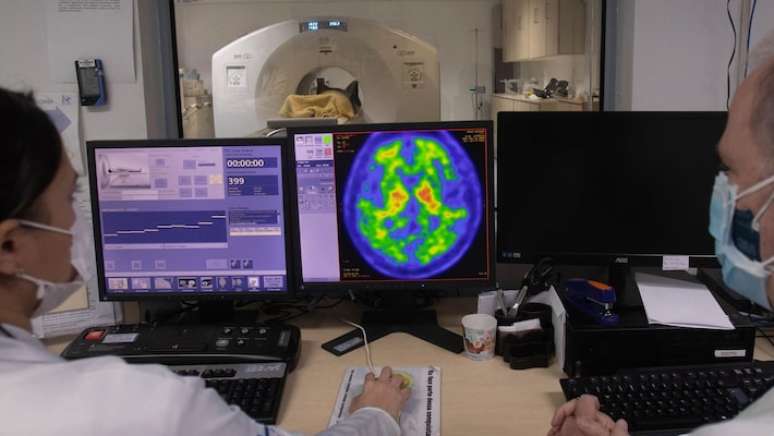Leqembi has already received approval from other countries, such as the United States; the European body has expressed concern about the drug’s side effects
The Committee for Medicinal Products for Human Use of the European Medicines Agency (EMA) has disapproved the marketing of Leqembimedicine used to treat Alzheimer detected in a certain sense early.
According to the agency, concerns about the potential side effects of the drug, developed by the North American company Biogen in collaboration with the Japanese laboratory Eisai, outweigh the impact it has on slowing the disease that affects brain function.
The European agency’s decision sent shares of Cambridge, Massachusetts-based Biogen tumbling on Friday.
In a statement, the regulators expressed their disappointment at the disapproval and said they would reassess the committee’s opinion in order to market the medicine to eligible patients in the European Union.
“We are extremely disappointed by the negative opinion of the CHMP (acronym in English for Committee on Medicinal Products for Human Use) and we understand that this may also be disappointing for the broader Alzheimer’s disease community (AD is an irreversible neurodegenerative disease that poses significant challenges for those living with the disease, their healthcare partners and society), said Lynn Kramer, Eisai’s chief clinical officer, in a joint statement with Biogen.
According to the treatment developers, Alzheimer’s currently affects 6.9 million people in Europe and this number is expected to nearly double by 2050 as the elderly population increases.
“Eisai will seek to review the Committee’s opinion and work with the relevant authorities to ensure that this treatment is available as quickly as possible to eligible people living with early Alzheimer’s disease in the European Union,” the statement added.
Other countries have already approved the use of Leqembi
The agency’s committee recommended 14 new drugs for approval at its July meeting. Leqembi was the only one to receive a negative opinion. Before being banned in Europe, the treatment had already received approval in the United States, Japan, China, South Korea, Hong Kong and Israel.
Last year, Leqembi received full approval from the U.S. Food and Drug Administration (FDA). Earlier this month, the FDA also approved another drug that follows a similar approach, Eli Lilly’s Kisunla.
How Leqembi Works and Side Effects
Leqembi works by eliminating a sticky brain plaque linked to the disease. A large study showed that the drug slowed the decline in memory and thinking by several months in those who received the drug compared to those who received a dummy drug.
The drug, however, can also cause swelling and bleeding in the brain, side effects that can be dangerous.
Falling stocks
Biogen shares fell more than 4% to $216.82 shortly after the market opened Friday, and Lilly shares fell 1%. Phil Nadeau, an analyst at investment bank TD Cowen, said in a note that he was surprised and disappointed by the committee’s decision.
He said, however, that Leqembi’s disapproval would not affect his sales estimates as he believed any European launch “would be very slow as reimbursement is negotiated and the complicated logistics of diagnosis and treatment are worked out.”WITH AP.
*This content has been translated with the help of artificial intelligence tools and reviewed by our editorial team. Learn more in our AI Policy.
Source: Terra
Ben Stock is a lifestyle journalist and author at Gossipify. He writes about topics such as health, wellness, travel, food and home decor. He provides practical advice and inspiration to improve well-being, keeps readers up to date with latest lifestyle news and trends, known for his engaging writing style, in-depth analysis and unique perspectives.







